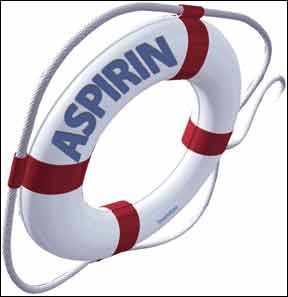If you have cardiovascular disease, you may be taking daily aspirin. A child-sized dose of this inexpensive drug can help ward off heart attacks and strokes. But studies show it may do more harm than good in some people-or no good at all. Researchers continue to define who is most likely to benefit from aspirin. Its value appears to depend on your age, gender and whether you have already suffered a heart attack or stroke ("secondary prevention") or simply want to prevent the first one ("primary prevention"). Heres the latest on aspirins preventive powers.
To continue reading this article or issue you must be a paid subscriber.
Sign in






